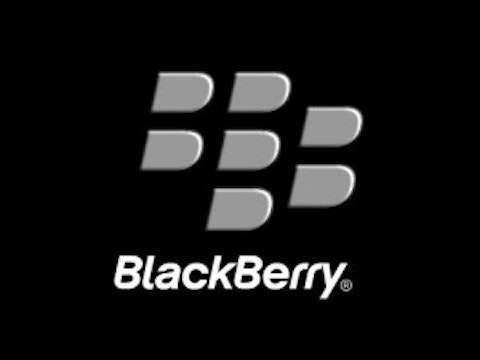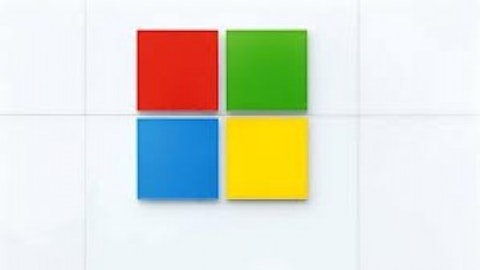
During the shareholder meeting, BlackBerry CEO Thorsten Heins explained his three-stage transformation plan to bring BlackBerry back to profitability. The company completed the first stage over the past year by refocusing on the brand, increasing company sentiment, reducing costs and sustaining a strong liquidity position. Research In Motion Ltd (NASDAQ:BBRY) is in the second stage of its turnaround, aiming to build and invest in BlackBerry 10 and its Enterprise Solution for businesses. The third stage focuses on benefiting from the company’s changes and investments and returning to profitability.
Dismal Earnings
BlackBerry announced a net loss of $84 million or $0.16 per share, down from a net profit of $98 million or $0.19 per share in the previous quarter. In the same period last year, BlackBerry posted a loss of $518 million or $0.99 per share. BlackBerry expected to breakeven for the quarter. Revenue came in at $3.07 billion, up from $2.8 billion a year ago and up 15% sequentially from the previous quarter. Gross margin fell to 33.9% from 40.1% last quarter.
Management blamed part of its profit losses on Venezuelan foreign currency regulations that shaved off $0.10 per share from the bottom line. The Venezuelan restrictions cost Research In Motion Ltd (NASDAQ:BBRY) $72 million in service revenues and 2% in gross margins. BlackBerry’s results fell short of consensus expectations of $0.06 earnings per share on $3.4 billion in revenues. The company reported that it will not make an operating profit in the current (second) quarter.
BlackBerry ended the quarter with 72 million subscribers, down from 76 million and 79 million subscribers in the preceding quarters. Subscribers decreased in Latin America, Europe, Middle East, Africa and North America. The company gained ground in Asia-Pacific with additional users. Investors expected the subscriber base to stabilize after the launch of BlackBerry 10, but the company continues to lose subscribers to handsets powered by Apple Inc. (NASDAQ:AAPL), Google and Microsoft Corporation (NASDAQ:MSFT) operating systems.
Although BlackBerry reported weaker-than-expected earnings, the company posted a stronger balance sheet than previous quarters. The company increased its cash and investment balance to $3.1 million and recorded no outstanding debt. The company saved $1 billion in costs with its restructuring program that minimized its workforce and manufacturing facilities.
Investors hammered the stock below $11 per share, down more than 28% in pre-market trading after the company’s disappointing earnings report – price levels seen in November before the launch of BlackBerry 10. At the time of writing, the stock trades at $9.28 per share.
Some believe Research In Motion Ltd (NASDAQ:BBRY) has no future in the smartphone market and that it will go out of business. It is difficult to make these allegations when BlackBerry has no debt on its balance sheet and holds billions of dollars in the bank. The company may become a takeover target – an expensive takeover target that will reward shareholders.
Competition
The smartphone market has become more competitive than six years ago when BlackBerry and Apple Inc. (NASDAQ:AAPL) dominated. Since then, other competitors caught up and flooded the market with differentiated products at competing price levels. Some feel the company underestimated the smartphone market and entered too late with its new BlackBerry 10 handsets. The company has struggled to recover market share from Apple Inc. (NASDAQ:AAPL) and Google in the U.S. smartphone market – a competitive market that Heins believes Research In Motion Ltd (NASDAQ:BBRY) needs to penetrate to remain relevant.
According to market research firm Kantar, Google’s Android operating system dominated the United States with 52% market share during the second quarter. Apple closed the gap with 41.9% share. Apple’s partnership with T-Mobile helped the iPhone maker become the best selling smartphone on T-Mobile in the three-month period ending in May. T-Mobile dumped subsidies and two-year contracts and offered unlocked iPhones at full price – a hit with U.S. customers.
“The highly anticipated release of the iPhone on T-Mobile has benefited iOS in the latest three-month period, though it has not yet impacted T-Mobile’s share in the market,” said Dominic Sunnebo from Kantar. Apple’s iPhone sales made up 31% of T-Mobile’s smartphone sales over the second quarter. AT&T and Verizon accounted for 60.5% and 43.8% of iPhone’s sales, respectively.
Microsoft Threat
Microsoft Corporation (NASDAQ:MSFT)’s Windows Phone placed third in the U.S. market at 4.6%, up one percentage point year-over-year. Kantar did not mention BlackBerry in the report. During the three-month period ending in March, BlackBerry OS ranked third with 5.2% market share, down from 27.1% in March 2011, according to data compiled by market researcher comScore.
BlackBerry’s lucrative niche enterprise market that provides services to corporate customers faces stiff competition from rival operating systems with powerful security offerings. MobileIron CEO Bob Tinker believes Microsoft Corporation (NASDAQ:MSFT) is steadily stealing share from BlackBerry. MobileIron produces smartphone management software used by 5,000 companies.
“Most of our customers have been planning to support three mobile operating systems – iOS, Android and either Windows Phone or BlackBerry,” Tinker told Bloomberg. “The recent results indicate that BlackBerry is not going to be the third.”
Pete Devenyi, SVP of Enterprise Software for Research In Motion Ltd (NASDAQ:BBRY), stated that the company has received strong support for its operating system. “The adoption of BlackBerry 10 has been very much in accordance with our expectations,” Devenyi told Bloomberg. During the shareholder meeting, Heins said that 19,000 companies have tested and deployed BlackBerry Enterprise Service 10 – about 60% of BlackBerry’s Fortune 500 customers.
Short Interest
Source : Short Analytics (click image for bigger picture)
Short interest in BlackBerry has doubled over the past 12-months, contributing to wild swings in the stock price. As of June 28, 184.4 million shares of BlackBerry are held short, up from 182.6 million shares on June 14. The average number of days to cover decreased from 9.4 to 5.3 days. With more than 35% of shares short, the company has become an unattractive investment opportunity. If BlackBerry successfully completes its transformation process and returns to profitability, short-sellers may cover their short positions to lock-in profits—causing the stock price to increase and attract new investors to the company.
Heins wants investors to understand that re-inventing a company is a difficult task and it does not happen overnight. Investors need to stay patient during the full roll-out of Research In Motion Ltd (NASDAQ:BBRY)’s products and services in order to see a return on their investment. In the short-term, BlackBerry remains an unattractive company compared to Apple, Google and Microsoft. In the long-term, BlackBerry strives to grow the business with its revamped product ecosystem, return to sustainable profitability and recover lost market share from competing brands. Patient investors will benefit from BlackBerry’s turnaround.
The article BlackBerry Competition Heats Up, Short Interest Rises originally appeared on Fool.com and is written by Christopher DeSousa.
Christopher DeSousa has no position in any stocks mentioned. The Motley Fool recommends Apple. The Motley Fool owns shares of Apple and Microsoft. Christopher is a member of The Motley Fool Blog Network — entries represent the personal opinion of the blogger and are not formally edited.
Copyright © 1995 – 2013 The Motley Fool, LLC. All rights reserved. The Motley Fool has a disclosure policy.






